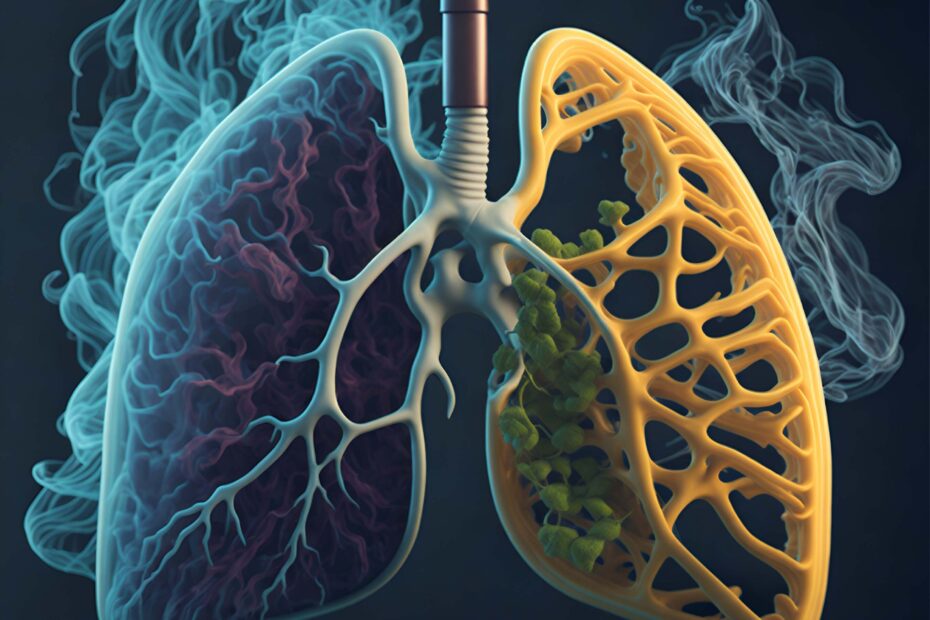Are you concerned about the toxins and chemicals that may be affecting your lung health? Whether it’s cigarette smoke, pollution, cleaning supplies, or even mold and mildew, our lungs are constantly exposed to harmful substances that can lead to inflammation and long-term damage. In this informative health blog article, we will explore effective strategies to detoxify your lungs, reduce inflammation, and promote optimal respiratory function.
Understanding Lung Toxins:
Did you know that cigarette smoke contains over 7,000 chemicals, with 250 of them being harmful and 69 being carcinogenic? Yes, smoking exposes your lungs to ammonia, formaldehyde, hydrogen cyanide, and even cadmium—a heavy metal. Not only does firsthand and secondhand smoking pose a risk, but there’s also third-hand smoking, where chemical particles settle on furniture and clothing, exposing you even when you’re not actively smoking. The goal here is to not only lower the risk of cancer but also to address other lung-related issues such as chronic obstructive pulmonary disease (COPD).
Beyond Smoking:
Other Lung Stressors: While smoking is a significant contributor to lung problems, it’s not the only culprit. Air pollution, household cleaning chemicals, mold, and even radon gas can impact your lung health. When combined with pre-existing lung infections, these stressors can lead to severe complications. It’s important to understand that lung inflammation plays a key role in the development of various respiratory conditions, including lung cancer. Inflammation creates a favorable environment for cancer cells to thrive. This article focuses on addressing inflammation in the lungs and reducing its impact.
The Liver-Lung Connection:
When toxins enter your lungs, they often go beyond the respiratory system and make their way into the liver. The liver plays a crucial role in detoxification, breaking down harmful substances through various enzymatic processes. However, chronic exposure to toxins overwhelms the liver’s capacity, leading to inflammation and even fat accumulation. This liver inflammation can contribute to heart problems as toxins travel through the bloodstream. It’s important to note that chronic exposure to toxins poses the greatest risk, making it vital to address the detoxification process.
Effective Remedies for Lung Detoxification:
Now, let’s explore some potent remedies that can protect and detoxify both your lungs and liver. These remedies go beyond the common suggestions of cough-suppressing herbs and lung-soothing techniques typically found in search results. We’re focusing on herbs and nutrients that specifically target inflammation and support detoxification.
- Milk Thistle: Known for its exceptional liver-protective properties, milk thistle also offers significant benefits to the lungs. This herb acts as a potent anti-inflammatory and protects against toxins. If you have COPD, smoke, or wish to repair your lungs, incorporating milk thistle into your regimen is highly recommended.
- Tocotrienols: A form of vitamin E, tocotrienols possess powerful antioxidant and anti-inflammatory properties. They play a crucial role in preventing fibrosis—the formation of scar tissue—in the lungs and arteries. By reducing inflammation, tocotrienols contribute to healthier lung function.
- Vitamin D: This essential vitamin not only supports overall health but also acts as a potent anti-inflammatory agent. Taking around 20,000 IU of vitamin D daily can help alleviate lung inflammation and support respiratory well-being. Additionally, vitamin D may have a positive impact on autoimmune conditions that affect lung health.
Conclusion:
When it comes to maintaining healthy lungs, it’s crucial to address inflammation and support the detoxification process. By incorporating remedies such as milk thistle, tocotrienols, and vitamin D into your routine, you can reduce inflammation, protect against toxins, and enhance your lung health. Remember, it’s important to consult with your healthcare provider before making any significant changes to your health regimen.
